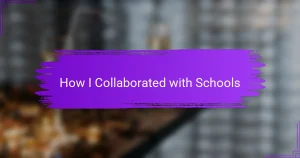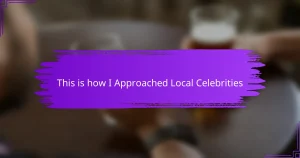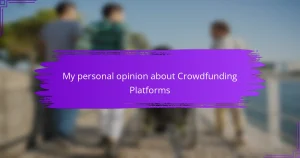Key takeaways
- Volunteer recruitment is about connecting with individuals’ passions, making them feel valued and needed through impactful storytelling.
- Identifying potential volunteers involves recognizing those engaged in conversations about the cause and understanding their unique skills.
- Effective communication and follow-up create lasting relationships, turning casual interest into dedicated involvement.
- Sustained engagement relies on regular check-ins, opportunities for growth, and celebrating small wins to maintain motivation and commitment.
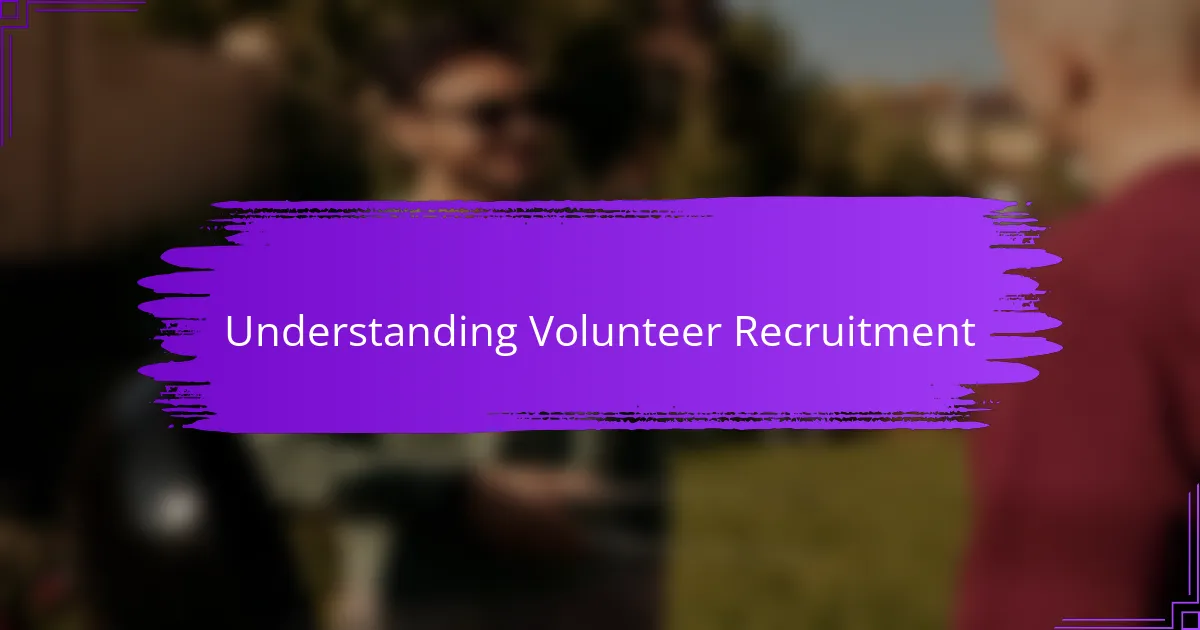
Understanding Volunteer Recruitment
Recruiting volunteers is more than just asking for help—it’s about connecting with people’s passions and values. I found that when I tapped into why someone cared about the Obama supporter community, their willingness to join and contribute became effortless. Have you ever noticed how people open up when you genuinely listen to their motivations?
One thing I realized early on is that volunteers want to feel needed and appreciated. It’s not enough to say, “We need you”; instead, showing them the impact they can make turns a casual interest into real commitment. For me, sharing stories of how their efforts directly supported campaign goals made a big difference.
Isn’t it fascinating how timing plays a role in recruitment? Approaching people when they’re already energized about a cause creates a natural momentum. I learned to read those moments carefully, jumping in with invitations to join that felt organic, not forced. It taught me that understanding volunteer recruitment is really about understanding people.
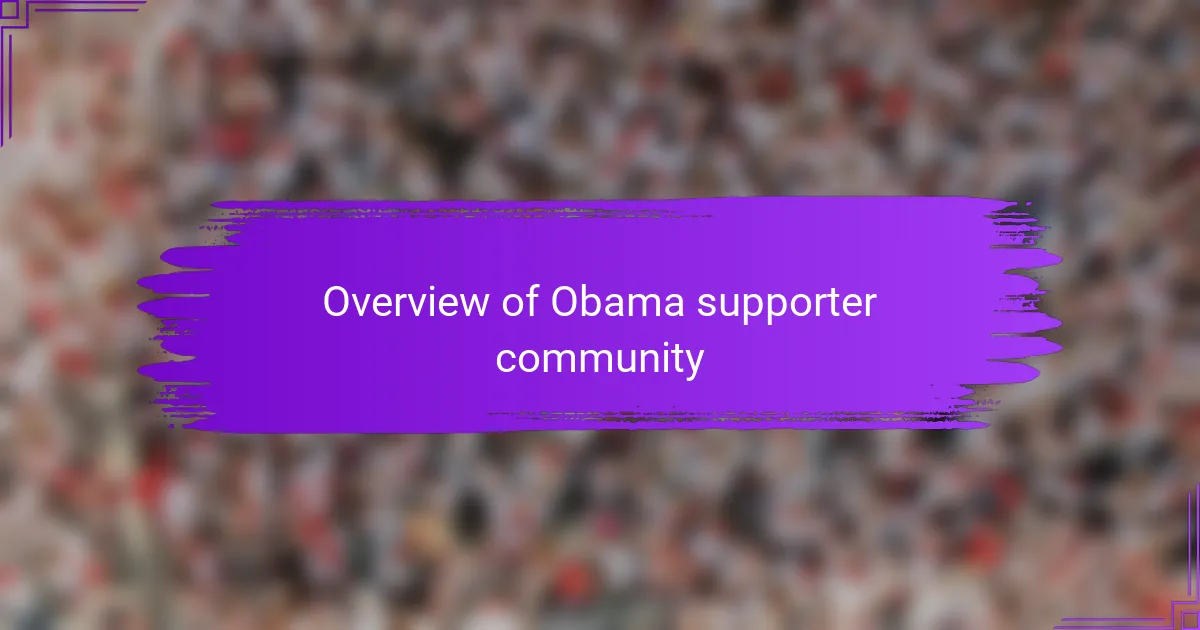
Overview of Obama Supporter Community
The Obama supporter community is more than a group of political followers; it’s a vibrant network bound by shared hope and a vision for change. When I first joined, I was struck by how people from diverse backgrounds came together, driven not just by politics but by a deep belief in progress and unity. Have you ever been part of something where the energy feels almost contagious? That’s exactly how it felt being among these supporters.
What stood out most to me was the genuine sense of connection within the community. It wasn’t just about rallies or speeches; it was about conversations over coffee, late-night strategy calls, and the feeling that everyone’s voice mattered. I remember one evening, talking with a group who had their own reasons to support Obama, and realizing how personal and powerful those stories were.
You might wonder how such a large community stays cohesive and motivated. From my experience, it’s the shared values that create a strong foundation. When people see that their passion aligns with a collective mission, it fuels their commitment in a way that’s hard to describe but easy to feel. Isn’t that the kind of community we all seek?
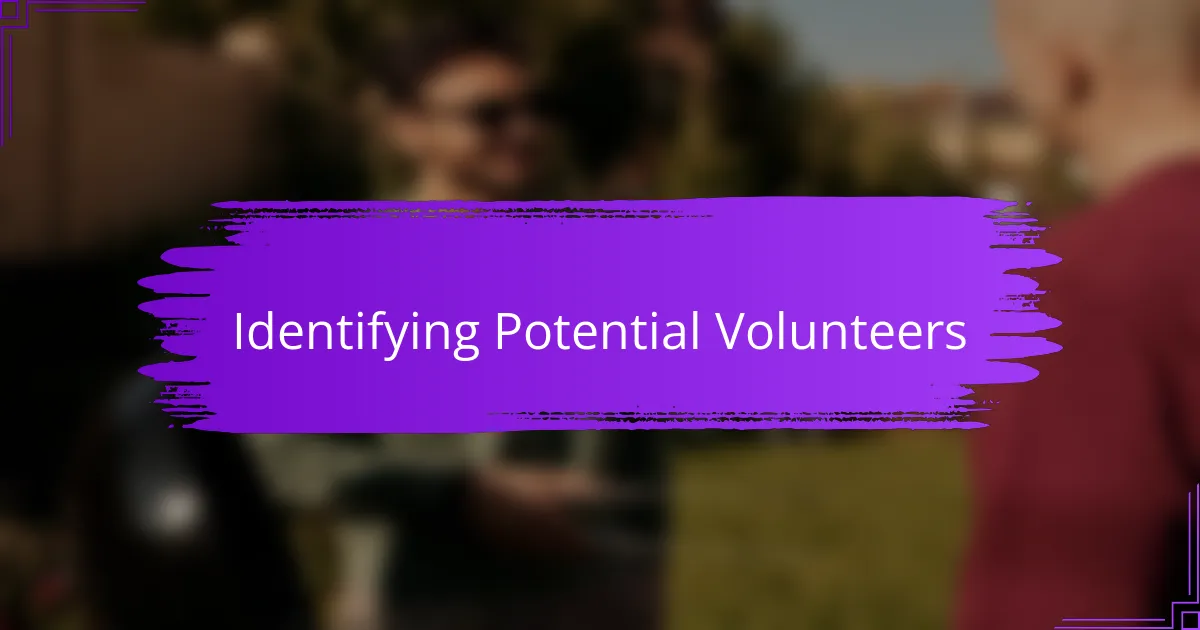
Identifying Potential Volunteers
When I started looking for volunteers, I realized that potential candidates are often right in front of you, but you have to know where to look. I paid close attention to those who were already engaging in conversations about the Obama movement or who shared stories about why they cared. Have you noticed how some people light up when talking about their values? That’s usually a strong sign they might want to get more involved.
At times, it was about spotting small actions that hinted at bigger enthusiasm—someone who showed up regularly to events or who actively shared posts online. Those little signs told me they weren’t just casual supporters; they had the spark to become volunteers. I remember one evening when I reached out to a shy attendee after noticing her consistent presence; she became one of the most dedicated volunteers.
Identifying potential volunteers isn’t only about enthusiasm; it’s also about understanding their unique skills and how these could match our needs. Asking simple questions about their interests and experience helped me see where they could fit best. It was like putting together a puzzle, each person adding their piece to our shared mission. Doesn’t it feel rewarding to help someone find the perfect way to contribute?
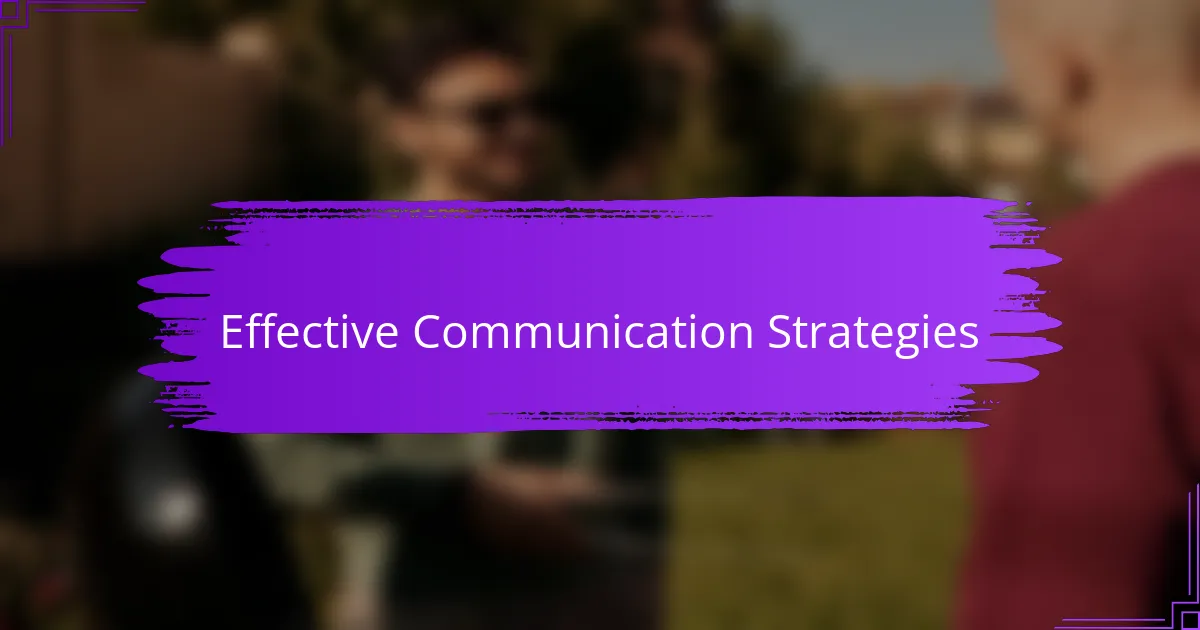
Effective Communication Strategies
What I found most effective was tailoring my message to each person’s communication style. Some volunteers responded best to heartfelt conversations, while others needed clear, concise information about their role. Have you ever noticed how a simple change in your approach can completely shift someone’s reaction?
Listening actively was another game-changer for me. When I genuinely focused on what people said—not just waiting to talk—I could sense their unspoken concerns or excitement. This helped me address doubts and highlight opportunities that truly resonated with them.
I also learned that follow-up communication matters just as much as the initial ask. Sending a quick thank-you or checking in after a conversation made people feel valued, not just recruited. Small gestures like these often turned “maybe” into a committed “yes.” Have you tried reaching out just to say thanks? It’s amazing how far that goes.
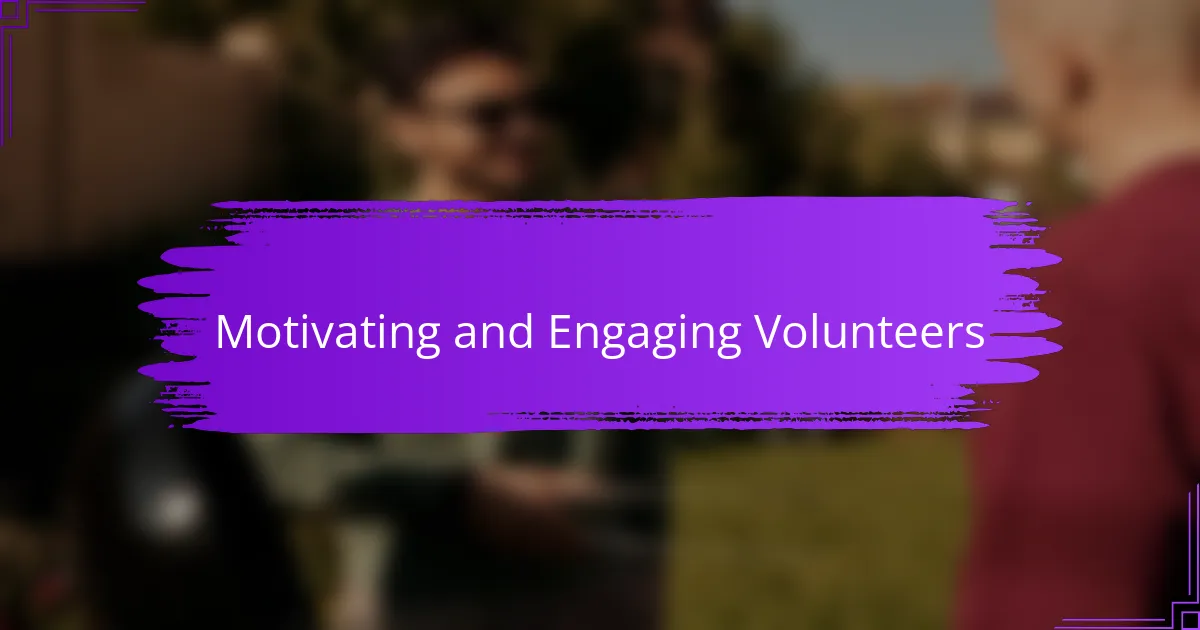
Motivating and Engaging Volunteers
Motivating volunteers means tapping into what truly drives them. I noticed that when I reminded people how their small actions fit into the bigger picture of advancing Obama’s vision, their enthusiasm grew naturally. Isn’t it inspiring when someone realizes their effort actually moves the needle?
Keeping volunteers engaged takes more than praise; it requires ongoing connection. I used to check in regularly, asking about their experiences and challenges, which made them feel heard and committed. Have you ever felt more motivated simply because someone showed they cared about your journey?
One thing I learned is that volunteers want to see tangible results. Sharing updates about how their work helped register voters or boost turnout made all the difference. Seeing progress in real time gave them a sense of accomplishment that kept them coming back. How often do we forget that people want their efforts to matter—right now?
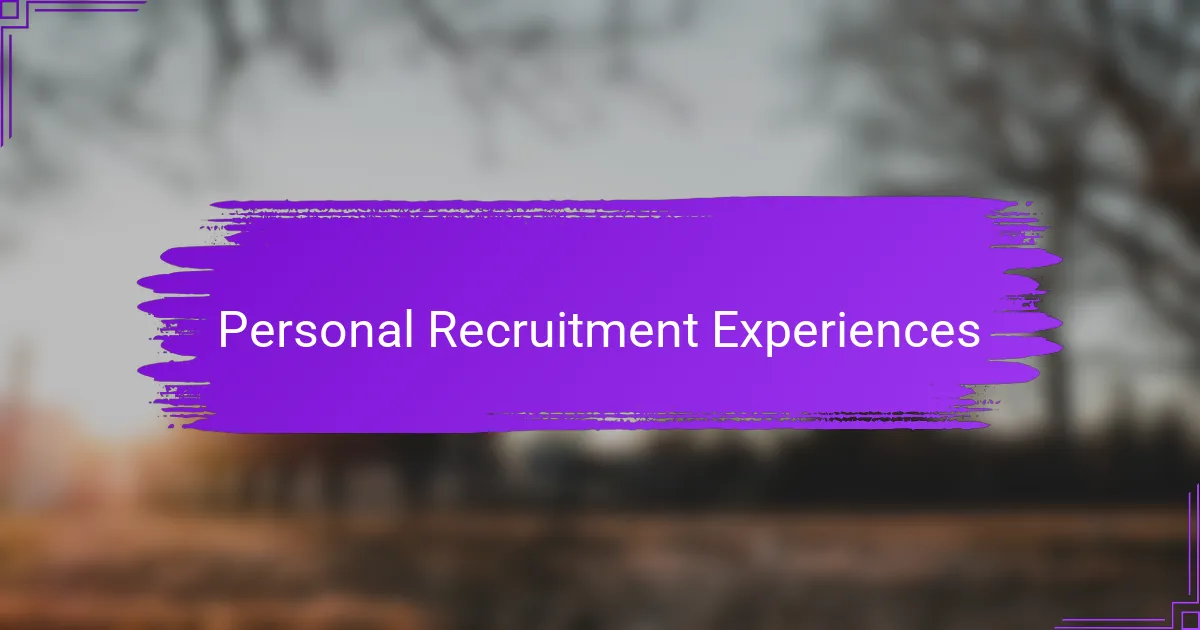
Personal Recruitment Experiences
I remember one moment that shaped how I approached recruiting volunteers: after a lively community event, I struck up a casual chat with a few attendees. Their enthusiasm was contagious, and when I asked why they supported Obama’s vision, their heartfelt answers made it easy to invite them to join our efforts. Have you ever found that a genuine conversation can open doors that formal requests never could?
Sometimes, the challenge wasn’t in finding volunteers but in overcoming their hesitation. I recall a friend who initially declined, worried about the time commitment. Instead of pressuring, I shared stories of how even small contributions helped make a real impact, and gradually, she not only joined but became one of our most passionate team members. Doesn’t it show how patience and empathy can turn doubt into dedication?
Another experience that stays with me is when I organized a small meet-up to thank our volunteers. Watching their faces light up during those moments of appreciation reminded me why personalized engagement matters so much. It convinced me that recruitment isn’t a one-time ask—it’s about building relationships that inspire people to keep giving their best. Have you noticed how recognition often fuels more commitment than any grand speech ever could?
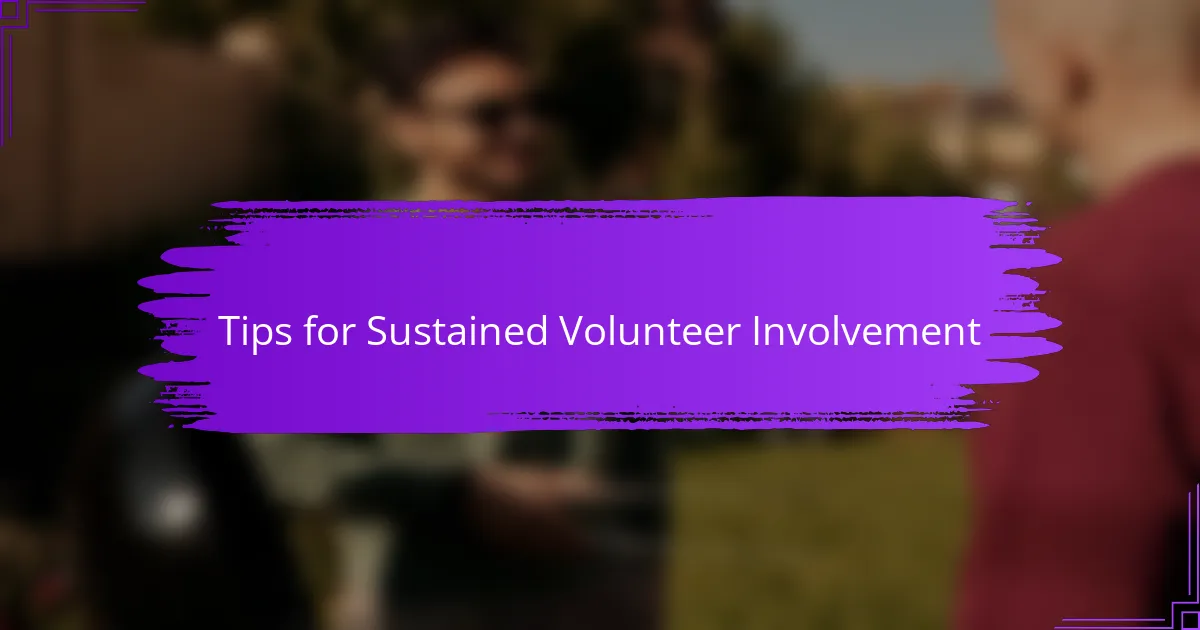
Tips for Sustained Volunteer Involvement
Sustaining volunteer involvement isn’t just about getting a “yes” once; it’s about nurturing that commitment over time. I found that regular check-ins—simple conversations asking how they’re doing or if they need support—created a connection that went beyond the tasks. Have you experienced how feeling genuinely seen makes you want to keep showing up?
Another thing that really helped was providing opportunities for volunteers to grow. When I invited people to take on new roles or learn new skills, they felt challenged and valued, not stuck in routine. It made me realize that growth isn’t just for careers—it’s also critical for keeping passion alive in community work.
Lastly, celebrating small wins together creates a sense of progress that fuels motivation. I remember organizing a casual get-together after a successful voter registration drive, and the energy in the room reminded me why people keep coming back. Don’t you think that recognizing effort, even in little ways, makes all the difference?
